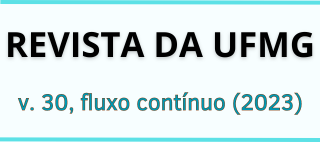Ética e inteligencia artificial
desafíos y mejores prácticas
DOI:
https://doi.org/10.35699/2965-6931.2023.47673Palabras clave:
inteligencia artificial, principio moral, aprendizaje automático, aprendizaje profundo, sesgo del algoritmoResumen
El rápido avance de la inteligencia artificial (IA) trajo consigo la necesidad de comprender su impacto social y sus implicaciones éticas. En este sentido, este artículo planteó y discutió las principales cuestiones éticas relacionadas con la IA, los principales obstáculos actuales en el desarrollo de algoritmos de aprendizaje automático y las mejores prácticas para desarrollar algoritmos éticos y justos. Los sesgos pueden perpetuarse fácilmente mediante el uso de datos desequilibrados y correlaciones sin fundamento. Ante esto, la colaboración entre los desarrolladores de algoritmos y otros especialistas se vuelve fundamental para comprender las diferentes perspectivas e identificar las formas sutiles de propagación de los prejuicios. La ética de los algoritmos no es un problema que se resolverá solo a través de un enfoque tecnológico; este problema también involucra cuestiones sociales, culturales, legales y políticas. Por lo tanto, el desarrollo tecnológico y la responsabilidad social deben ir de la mano, para evitar que se agraven las diferencias sociales.Descargas
Citas
ADAMSON, Adewole S.; SMITH, Avery. Machine Learning and Health Care Disparities in Dermatology. JAMA Dermatology, v. 154, n. 11, p. 1247–1248, 2018.
ALTEXSOFT. Machine Learning Metrics: How to Measure the Performance of a Machine Learning Model, 16 jun. 2023. Disponível em: <https://www.altexsoft.com/blog/machine-learning-metrics/>. Acesso em: 26 abr. 2023.
CORREA, Danielle M. Feature Engineering: preparando dados para aprendizado de máquina. Ateliware, 12 maio 2021. Disponível em: <https://ateliware.com/blog/feature-engineering>. Acesso em: 29 jun. 2023.
GARCIA, Ana C. Ética e inteligência artificial. Computação Brasil, v. 43, p. 14-22, 2020.
GOOGLE AI. Data Preparation and Feature Engineering in ML, 2023. Disponível em: <https://developers.google.com/machine-learning/data-prep>. Acesso em: 11 maio 2023.
GOOGLE AI. Responsible AI practices, 2023. Disponível em: <https://ai.google/responsibilities/responsible-ai-practices/>. Acesso em: 17 maio 2023.
HIGH-LEVEL EXPERT GROUP ON AI. Ethics guidelines for trustworthy AI.
JOBIN, Anna; IENCA, Marcello; VAYENA, Effy. The global landscape of AI ethics guidelines. Nature Machine Intelligence, v. 1, p. 389-399, 2019.
KARALE, Ashwin. The challenges of IoT addressing security, ethics, privacy, and laws. Internet of Things, v. 15, p. 100420, 2021.
KNOBLOCH-WESTERWICK, Silvia; WESTERWICK, Axel. Algorithmic personalization of source cues in the filter bubble: Self-esteem and self-construal impact information exposure. New Media & Society, v. 25, n. 8, 2023.
KOSHIYAMA, Adriano. et al. Towards algorithm auditing: a survey on managing legal, ethical and technological risks of AI, ML and associated algorithms. SSRN, 2021.
LARSSON, Stefan. On the Governance of Artificial Intelligence through Ethics Guidelines. Asian Journal of Law and Society, v. 7, n. 3, p. 437-451, 2020.
MITTELSTADT, Brent. Principles alone cannot guarantee ethical AI. Nature Machine Intelligence, v. 1, p. 501-507, 2019.
MITTELSTADT, Brent D. et al. The ethics of algorithms: Mapping the debate. Big Data & Society, v. 3, n. 2, p. 1-21, 2016.
NEOWAY. O que é data leakage e como essa falha pode contaminar as decisões, 12 ago. 2023. Disponível em: <https://blog.neoway.com.br/data-leakage/>. Acesso em: 04 jul. 2023.
NEX SOFTSYS SOFTWARE DEVELOPMENT COMPANY. Common Pitfalls Which May Mislead Results In Machine Learning, 2023. Disponível em: <https://www.nexsoftsys.com/articles/common-pitfalls-in-machine-learning.html>. Acesso em: 13 abr. 2023.
OBERMEYER, Ziad. et al. Dissecting racial bias in an algorithm used to manage the health of populations. Science, v. 366, n. 6464, p. 447-453, 2019.
ROSSETTI, Regina; ANGELUCI, Alan. Ética Algorítmica: questões e desafios éticos do avanço tecnológico da sociedade da informação. Galáxia, v. 46, p. 1-18, 2021.
SANTOS, Miriam S. et al. Cross-validation for imbalanced datasets: avoiding overoptimistic and overfitting approaches. IEEE Computational Intelligence Magazine, v. 13, n. 4, p. 59-76, 2018.
STILGOE, Jack. Machine learning, social learning and the governance of self-driving cars. Social Studies of Science, v. 48, n. 1, p. 25-26, 2018.
WAGNER, Nicholas; RONDINELLI, James M. Theory-guided machine learning in materials science. Frontiers in Materials, v. 3, p. 28, 2016.
WINFIELD, Alan F.; JIROTKA, Marina. Ethical governance is essential to building trust in robotics and artificial intelligence systems. Philosophical Transactions of the Royal Society A: Mathematical, Physical and Engineering Sciences, v. 376, n. 2133, p. 20180085, 2018.




